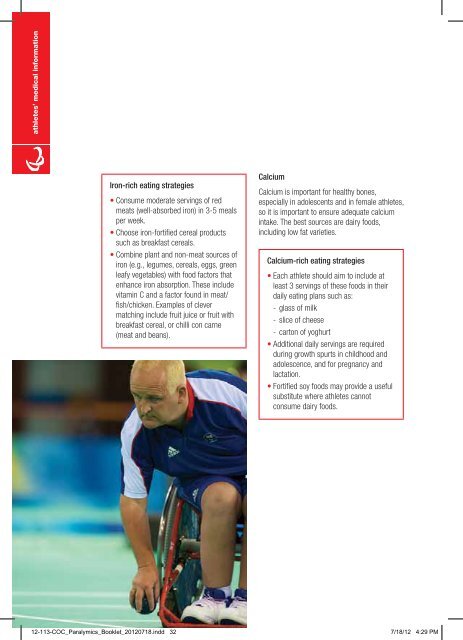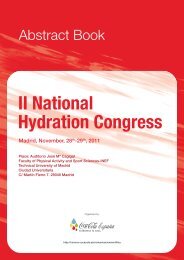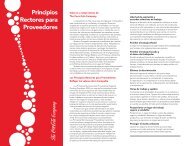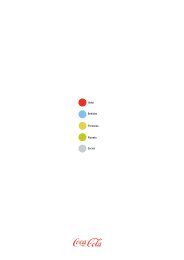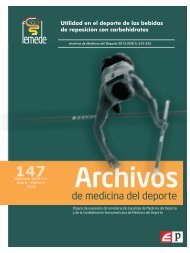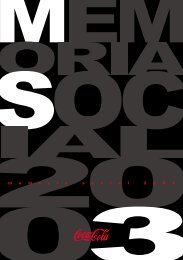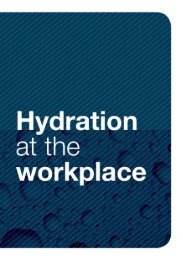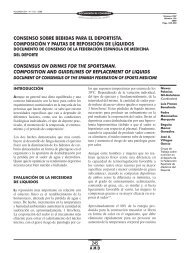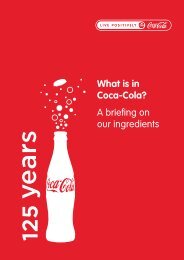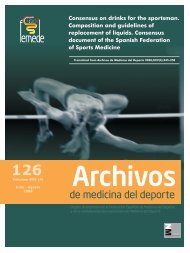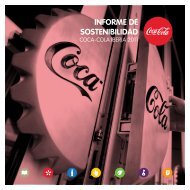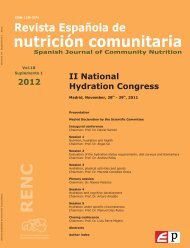athletes' medical information - Coca-Cola
athletes' medical information - Coca-Cola
athletes' medical information - Coca-Cola
Create successful ePaper yourself
Turn your PDF publications into a flip-book with our unique Google optimized e-Paper software.
athletes’ <strong>medical</strong> <strong>information</strong><br />
Iron-rich eating strategies<br />
Consume moderate servings of red<br />
meats (well-absorbed iron) in 3-5 meals<br />
per week.<br />
Choose iron-fortified cereal products<br />
such as breakfast cereals.<br />
Combine plant and non-meat sources of<br />
iron (e.g., legumes, cereals, eggs, green<br />
leafy vegetables) with food factors that<br />
enhance iron absorption. These include<br />
vitamin C and a factor found in meat/<br />
fish/chicken. Examples of clever<br />
matching include fruit juice or fruit with<br />
breakfast cereal, or chilli con carne<br />
(meat and beans).<br />
Calcium<br />
Calcium is important for healthy bones,<br />
especially in adolescents and in female athletes,<br />
so it is important to ensure adequate calcium<br />
intake. The best sources are dairy foods,<br />
including low fat varieties.<br />
Calcium-rich eating strategies<br />
Each athlete should aim to include at<br />
least 3 servings of these foods in their<br />
daily eating plans such as:<br />
- glass of milk<br />
- slice of cheese<br />
- carton of yoghurt<br />
Additional daily servings are required<br />
during growth spurts in childhood and<br />
adolescence, and for pregnancy and<br />
lactation.<br />
Fortified soy foods may provide a useful<br />
substitute where athletes cannot<br />
consume dairy foods.<br />
12-113-COC_Paralymics_Booklet_20120718.indd 32<br />
7/18/12 4:29 PM


